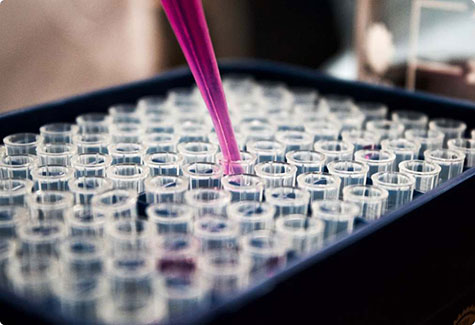MET-REPAIR
Chief Investigator: Dr. Giovanna LURATI BUSE (University Hospital Düsseldorf, Düsseldorf, Germany)
NEWS: Main study published – British Journal Anaesthesia, April 2023
Sub Studies published
April 2024: Cardiovascular-Kidney-Metabolic Syndrome: Association with Adverse Events After Major Noncardiac Surgery
November 2023: NT-proBNP or Self-Reported Functional Capacity in Estimating Risk of Cardiovascular Events After Noncardiac Surgery
Medical Problem
In Europe, inhospital mortality exceeded 7% in patients with coronary artery disease and in those with congestive heart failure. Within 30 days of noncardiac surgery procedures, 8% of patients will suffer a major cardiovascular event. Considering this impressive burden, guidelines on cardiovascular assessment prior to non-cardiac surgery are regularly issued by the European Society of Anaesthesiology and of Cardiology. A core question in the preoperative cardiac risk assessment recommendations is the estimation of cardiovascular functional capacity in metabolic equivalents (METs) in spite of scarce and non-conclusive evidence on the prognostic value of functional capacity estimated by questionnaire for perioperative cardiovascular events. As such, anaesthesiologists all over Europe are currently forced to decide on the preoperative work-up and perioperative management of round 10 million European patients every year based on limited evidence.
Objective
The aim of the MET-REPAIR study is to address the question: “Are METs estimated by questionnaire associated with perioperative major adverse cardiovascular events and cardiovascular mortality in patients undergoing elevated-risk, noncardiac surgery?”
Outcome Measures
The primary endpoint will consist of in-hospital major adverse cardiovascular events including cardiovascular mortality, nonfatal cardiac arrest, acute myocardial infarction, stroke, congestive heart failure requiring transfer to a higher unit of care or prolonged stay on ICU. Secondary endpoints will include the single items of the primary composite endpoint, in-hospital all-cause mortality, complications ≥ 3 in Clavien Dindo Classification [28], and myocardial injury after noncardiac surgery (MINS) for centres implementing a perioperative troponin screening. Outcomes will be adjudicated by the local PI, unaware of functional capacity, based on in-hospital documentation and standardised definitions.
Timeline
- Study selected by ESAIC Research Committee: March 2016
- Recruitment of patients: Start July 2017
> MET-REPAIR
Chief Investigator: Dr. Giovanna LURATI BUSE (University Hospital Düsseldorf, Düsseldorf, Germany)
Medical Problem
In Europe, inhospital mortality exceeded 7% in patients with coronary artery disease and in those with congestive heart failure. Within 30 days of noncardiac surgery procedures, 8% of patients will suffer a major cardiovascular event. Considering this impressive burden, guidelines on cardiovascular assessment prior to non-cardiac surgery are regularly issued by the European Society of Anaesthesiology and of Cardiology. A core question in the preoperative cardiac risk assessment recommendations is the estimation of cardiovascular functional capacity in metabolic equivalents (METs) in spite of scarce and non-conclusive evidence on the prognostic value of functional capacity estimated by questionnaire for perioperative cardiovascular events. As such, anaesthesiologists all over Europe are currently forced to decide on the preoperative work-up and perioperative management of round 10 million European patients every year based on limited evidence.
Objective
The aim of the MET-REPAIR study is to address the question: “Are METs estimated by questionnaire associated with perioperative major adverse cardiovascular events and cardiovascular mortality in patients undergoing elevated-risk, noncardiac surgery?”
Outcome Measures
The primary endpoint will consist of in-hospital major adverse cardiovascular events including cardiovascular mortality, nonfatal cardiac arrest, acute myocardial infarction, stroke, congestive heart failure requiring transfer to a higher unit of care or prolonged stay on ICU. Secondary endpoints will include the single items of the primary composite endpoint, in-hospital all-cause mortality, complications ≥ 3 in Clavien Dindo Classification [28], and myocardial injury after noncardiac surgery (MINS) for centres implementing a perioperative troponin screening. Outcomes will be adjudicated by the local PI, unaware of functional capacity, based on in-hospital documentation and standardised definitions.
Timeline
- Study selected by ESAIC Research Committee: March 2016
- Recruitment of patients: Start July 2017
Steering Committee
Giovanna Lurati Buse Germany, (Switzerland/Germany), Beatrice Beck-Schimmer (Switzerland), Stefan De Hert (Belgium), Miodrag Filipovic (Switzerland), Daniela Ionescu (Romania), Eckhard Mauermann (Switzerland), Wojciech Szczeklik (Poland), Salome Dell-Kuster (Statistician, Switzerland
Sponsor
The Study is entirely sponsored by a grant from the European Society of Anaesthesiology and Intensive Care Clinical Trial Network (ESAIC CTN). The aim of the European Society of Anaesthesiology and Intensive Care Clinical Trial Network is to provide an infrastructure for clinical research in the fields of Anaesthesia, Pain, Intensive Care and Emergency Medicine by transnational European collaborative studies.






